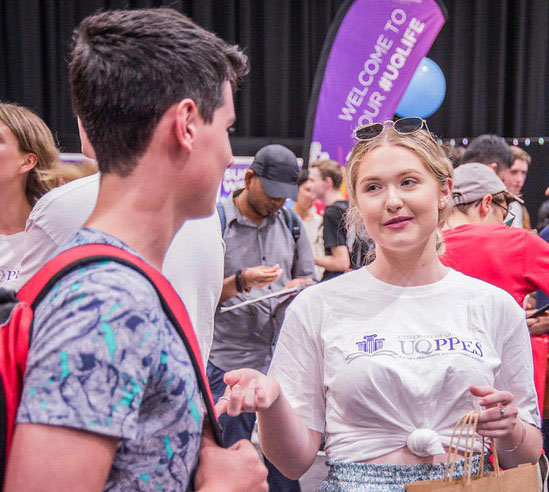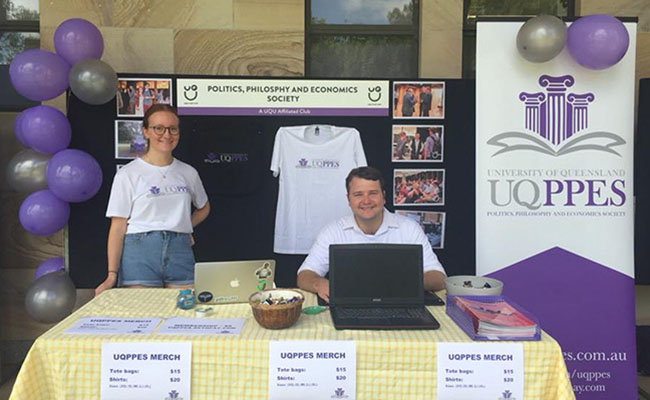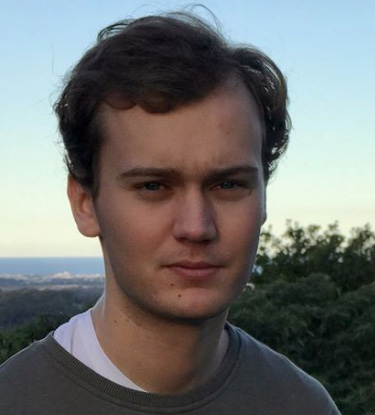How to get the most out of studying a Bachelor of Politics, Philosophy, and Economics at UQ
By Oliver Friendship
The Bachelor of Politics, Philosophy, and Economics (PPE) is one of the most interesting and engaging programs that UQ and the Faculty of Business, Economics, and Law have to offer. In this post, I’ll share some of the perks of studying PPE and give you some useful tips on how to make the most of your university experience.
Why study a Bachelor of PPE?
 UQ’s PPE program is unique among degrees because of its variety. It combines three quite disparate, yet not unrelated, study areas, and provides a fantastic academic challenge to students who excel across the board. It allows you to improve your mathematical abilities alongside your written expression; and your critical thinking alongside your research abilities, in a way that is unparalleled in any other program.
UQ’s PPE program is unique among degrees because of its variety. It combines three quite disparate, yet not unrelated, study areas, and provides a fantastic academic challenge to students who excel across the board. It allows you to improve your mathematical abilities alongside your written expression; and your critical thinking alongside your research abilities, in a way that is unparalleled in any other program.
If you are a motivated and high-achieving student with a keen interest in the world around you, PPE is the program for you.
How can I get the most out of my PPE experience?
My single biggest piece of advice for all new and aspiring PPEists at UQ is to physically turn up to uni as much as you can. As COVID-19 physical distancing restrictions begin to ease, make the most of being able to actually attend campus – you won’t regret it.
One of the benefits of the PPE program, and this is especially true in the first year, is that you are part of a small cohort who all study the same courses. This allows PPE students to get to know and build lasting connections with like-minded people in a way that students in other degrees simply cannot. However, this is only an advantage if you turn up to your lectures and tutorials and get to know the people in your course.
Although in the age of recorded lectures it can be tempting to skip classes and catch up on them later, physically being present as much as possible ensures that you have the best chance of thriving in your degree. I can honestly say that the bulk of my university friends were made through lectures and tutorials.
Not only does this network of friends provide an obvious social boon to my university experience, but we also help each other out with assignments and study, so it brings out the best in my academic work as well.
Join a club or society (or four)
I recommend that all new UQ students should, without exception, join their relevant faculty club or society. For PPEists, this means getting a $5 membership to the wonderful PPE Society (UQPPES) and maybe one to the Economics Society (UQES) as well.
These clubs and societies organise a vast array of fantastic social and academic events that will make your time at university more enjoyable and stimulating while giving you endless opportunities to meet other students who are also studying PPE.
UQ also has numerous special interest clubs that are well worth getting a membership to as well. From surfing to debating, you’ll be sure to find something that suits you – and all these clubs have plenty of activities planned as restrictions ease.

Tips for transitioning from high school to uni
While much is made of the step up from high school to uni, the greatest difference I personally noticed is just how much more work you have to do without any form of supervision when you get to university.
In uni, you can skip every lecture, miss every tutorial and fail to hand in one assignment – all without hearing from a member of staff. It’s on you to learn what you need to learn and do what you need to do.
This freedom and flexibility come with obvious bonuses of course, but it’s worth keeping in mind just how self-motivated and driven you need to be to achieve the grades you want. I recommend making a study diary, never allowing yourself to get more than one week behind when learning content and starting on assignments as early as possible.
About the author
 Oliver is currently in his second year of studying a Bachelor of Politics, Philosophy, and Economics at UQ. He is majoring in Economics.
Oliver is currently in his second year of studying a Bachelor of Politics, Philosophy, and Economics at UQ. He is majoring in Economics.
